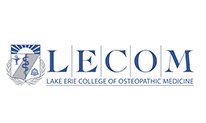Healthcare News
No More Knee Pain: The Best Running Shoes for Pain-Free Runs
There's nothing worse for a runner than feeling motivated to hit the roads, but not being able to because of an injury. "Runner's knee" is a general term that encompasses a few different conditions that can cause knee pain from running. Although running shoes won't cure knee pain on their own, choosing the right pair is a must if you hope to alleviate or avoid knee pain and keep logging those miles.
10 Strengthening Exercises for Hip Bursitis
Previously, researchers thought that hip bursitis was the primary cause of lateral or side hip pain. Now, experts know that greater trochanteric pain syndrome (GTPS) is a more accurate explanation. GTPS includes injury or wear and tear of the gluteal muscle tendons (tendinopathy), which may cause hip pain that worsens with movement.
Advanced technology could give us 'personalized' hip replacements
"Personalized" hip replacement surgery might be just what the doctor ordered for people with hip arthritis—according to new research. Using advanced technology from other industries such as automotive and manufacturing, researchers are driving medical advancement.
BioLig: a novel synthetic implant for knee ligament repair
If successfully developed, BioLig may provide an alternative to current surgical techniques for knee ligament repair, restoring stability in the knee without harvesting tissue from another area of the joint.
What can cause pain in the back of the knee when straightening the leg?
Pain in the back of the knee when straightening the leg is called posterior knee pain. Finding the cause can be difficult as it can come from problems with the bones, muscles, tendons, ligaments, nerves, or vascular system.
Multidisciplinary model can cut refracture risk for hospitalized adults with hip fracture
A multidisciplinary care model can reduce the risk for subsequent fractures among adults hospitalized for a hip fracture, according to findings published in Journal of Bone and Mineral Research.
Average hip, knee replacement patient may be getting younger
People might think of the typical joint replacement patient as a senior aged 65 or older, but the surgery is becoming much more common among younger adults with chronic joint pain.
Patient-Reported Outcome Measures Used on Patients With Anterior Cruciate Ligament Injury
Patient-reported knee-related rating scores and scales are widely used in reporting the clinical outcomes of anterior cruciate ligament (ACL) surgery. Understanding the psychometric properties of such measures is vital to recognizing the limitations that such measures may confer. The aim of this study was to review the available evidence as to the psychometric properties of patient-reported outcome measures (PROMs) used in ACL surgery.
Study: Mobile app aids recovery of elderly people with hip fractures and helps their caregivers
ActiveHip+ is a multidisciplinary intervention delivered through a mobile application. Designed as part of a European project led by UGR lecturer Patrocinio Ariza Vega, its purpose is to facilitate the recovery of elderly people who have suffered a hip fracture. It is also intended for use by informal caregivers, such as family members.
Balancing Anterior and Posterior Cruciate Ligaments in Adults
The anterior cruciate ligament (ACL) and posterior cruciate ligament (PCL) represent the central pivot of the knee. The balance between these two ligaments impacts the tibiofemoral biomechanics. Each structure is the opposite of the other in terms of anteroposterior translation and rotation. The aim of this study was to find a correlation between the cross-sectional area of the ACL and PCL in adults.











